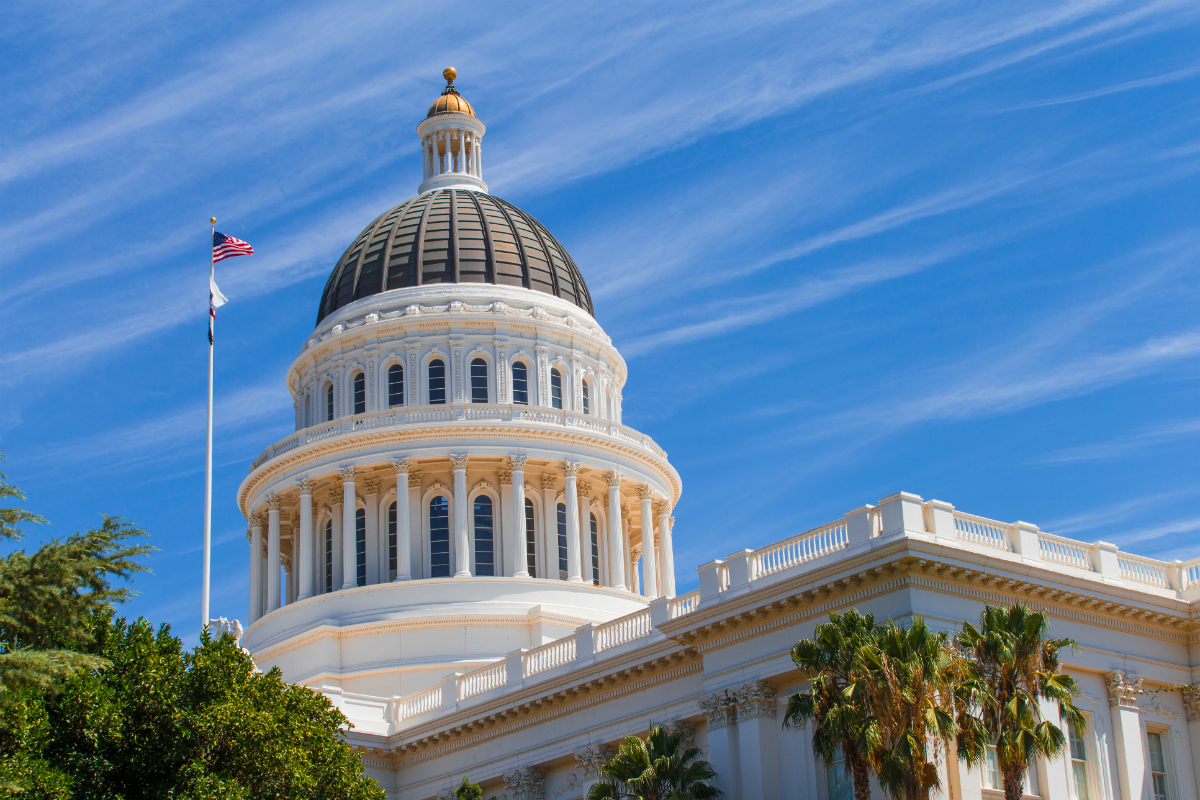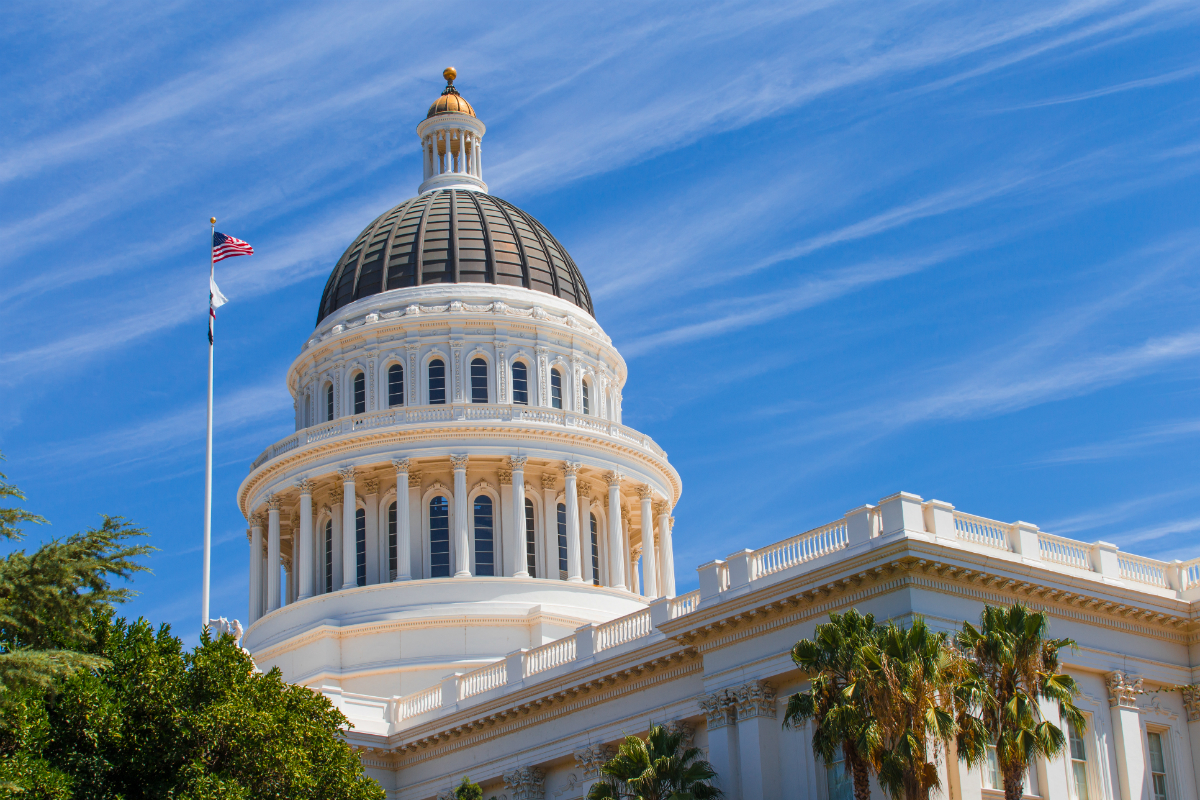After a busy final week, the Legislature had a somewhat quiet end of the 2023 legislative session, closing out its business and adjourning for the year just after midnight Sept. 15 for the “interim study session.”
Of the legislation passed in the final days of this year’s session, five bills sponsored by CSBA are among the successful measures that now sit on Gov. Gavin Newsom’s desk awaiting final approval. Together, this set of CSBA-sponsored legislation would help increase funding for student health, provide immediate relief during the teacher shortage, increase support for districts facing cyberattacks, help county boards appoint student members, and extend the opportunity for boards to meet remotely during states of emergency.
- Assembly Bill 1023 (Papan, D-San Mateo): Would increase cybersecurity support for school districts by requiring the California Cybersecurity Integration Center (Cal-CSIC) to include a representative from the California Department of Education and coordinate information sharing with school districts, county offices of education and charter schools. Passed by the Legislature on Sept. 6.
- Senate Bill 765 (Portantino, D-Glendale): Would provide immediate relief to schools during the teacher shortage by eliminating the 180-day mandatory waiting period and modifying the salary earning cap LEAs must observe before hiring a recently retired teacher. Read more about the bill here. Passed by the Legislature on Sept. 7.
- AB 483 (Muratsuchi, D-Torrance): Would expand access to school-based health and mental health services and increase funding for school districts by improving the Medi-Cal Local Education Agency Medi-Cal Billing Option Program (LEA BOP). The bill modifies and imposes new requirements related to timelines, reporting, technical assistance, stakeholder engagement and guidance for LEA BOP. Passed by the Legislature on Sept. 14.
- AB 417 (Bennett, D-Ventura): Would provide needed follow up to 2022 legislation that authorized a county board of education to select a student in a district school to fill a position on the county office board reserved for a pupil. In the absence of a petition for student representation, AB 417 would permit a county board to appoint one of its own students from a school directly under its jurisdiction to the position. Passed by the Legislature on Sept. 7.
- AB 557 (Hart, D-Santa Barbara): Would extend the opportunity for school boards to offer virtual meeting options during states of emergency. Passed by the Legislature on Sept. 11.
One other sponsored bill, SB 551 (Portantino), was placed on the inactive file and will be eligible to return in 2024. Thanks to CSBA advocacy, provisions from this bill (namely the requirement that county mental health boards include public education voices) have been incorporated into SB 326 (Eggman, D-Stockton), the vehicle for Gov. Newsom’s proposed mental and behavioral health system overhaul.
The Governor now has until Oct. 14 to sign or veto legislation. CSBA will continue to keep members informed on major decisions in the weeks ahead.
Many other notable education bills are also on their way to the Governor’s desk while others failed to secure final passage in the Legislature. Below are some of the key results from the last two weeks of the end of session, listed by issue area:
Curriculum
- AB 1078 (Jackson, D-Riverside): Would allow for complaints to be filed against LEAs that limit or prohibit the use of inclusive textbooks, instructional materials or school library materials in violation of the California FAIR Act. It would also provide for immediate state intervention by the State Superintendent of Public Instruction, including the assessment of financial penalties upon school districts that do not provide sufficient textbooks or instructional materials to its students. CSBA Position: Oppose. Passed by the Legislature on Sept. 7.
Funding
- AB 938 (Muratsuchi): Would create new Local Control Funding Formula funding targets for the 2030–31 fiscal year and require LEAs to submit employee salary data to the CDE annually. CSBA Position: Disapprove. Ordered to the inactive file and eligible to return in 2024.
Governance
- AB 764 (Bryan, D-Los Angeles): Would make school districts, county boards of education and other local governments subject to similar criteria and process requirements that apply to counties and cities when adjusting the boundaries of the districts used to elect members of their governing bodies. It would also increase the public hearing and outreach requirements that apply to all local jurisdictions as part of the process for adopting or adjusting boundaries and authorize a resident of the jurisdiction to file a petition with the court for an order adopting election district boundaries for an agency that misses the redistricting deadlines. CSBA Position: Oppose unless Amended. Passed by the Legislature on Sept. 13.
- SB 494 (Newman, D-Fullerton): Would prohibit the governing board of a school district from taking action to terminate a superintendent or assistant superintendent without cause at a special or emergency meeting of the governing board or within 30 calendar days after the first convening of the governing board after a general election. A recent amendment sought by CSBA and adopted in the Assembly Education Committee would protect a board’s authority to act during months when a regular meeting is not scheduled. CSBA Position: Tracking. Passed by the Legislature on Sept. 13.
- AB 1352 (Bonta, D-Oakland): Would authorize the governing board of a school district to censure a member of the board or, by a 2/3 vote of the governing board, remove a member from office if the member prevents the governing board from conducting its business or adopts a policy that contradicts any existing law requiring a school district to have inclusive policies, practices and curriculum. The bill also prohibits the governing board of a school district from taking an action that contradicts any existing law requiring a school district to have inclusive policies, practices and curriculum. CSBA Position: Oppose. In the Senate Education Committee awaiting further action in 2024.
Student health and mental health
- SB 326 (Eggman, D-Stockton): If passed and approved by voters, the bill would recast the Mental Health Services Act (MHSA) as the Behavioral Health Services Act (BHSA). It would clarify that county behavioral health programs are permitted to use BHSA funds to treat primary substance use disorder conditions, restructure current MHSA funding buckets, enhance the current process for local planning of various services funded by the BHSA, and for oversight, accountability and reporting of BHSA funds. The final version of the bill includes a CSBA-sponsored proposal to require county mental health boards to include members with education experience. CSBA Position: Approve. Passed by the Legislature on Sept. 14.
- SB 509 (Portantino): Would require LEAs serving students in grades 7-12 to certify to CDE by July 1, 2027, that 40 percent of classified and 100 percent of certificated employees who have direct contact with pupils at each school have received specified youth behavioral health training. It would also require instruction to students in grades 1-6 to include content on mental health. CSBA Position: Oppose unless Amended. Passed by the Legislature on Sept. 13.
Labor and human resources
- AB 897 (McCarty, D-Sacramento): Reduces the threshold for part-time probationary employees in adult education programs to be deemed to have served a complete school year if the employee has served 75 percent of a 60-percent short-term position. CSBA Position: Oppose. Passed by the Legislature on Sept. 11.
- AB 1699 (McCarty): Would apply a one-size-fits-all approach to LEA labor, overriding local control over hiring decisions. It would require LEAs to offer open classified staff positions to existing staff for a period of 10 days before making them available to the general public; offer such a position to non-probationary classified staff who either meet the minimum job requirements or could do so before their start date; give priority based upon seniority of the applicant within 1) the existing classification or 2) if the position would result in the applicant receiving more hours or wages; provide “reasonable modifications” to allow the classified staff to fulfill their existing job requirements and the new job assignment, and permit an employee who accepts a new assignment to elect to either add the hours for the new assignment to their current assignment, if feasible, or, if the new assignment is more hours than their current assignment, to replace their current assignment with the new assignment. CSBA Position: Oppose. Passed by the Legislature on Sept. 13.
- SB 433 (Cortese, D-San Jose): Removes the authority of an elected school board to make the ultimate decision on whether to take significant disciplinary action, such as the demotion, suspension or dismissal against a classified staff person, and place it into the hands of a third-party hearing officer. It would also require LEAs to fund the costs associated with obtaining a disciplinary ruling for cause from a third-party hearing officer, who would also be required to be jointly selected by the LEA and the union and extend the timeline to file an appeal. CSBA Position: Oppose. Passed by the Legislature on Sept. 12.
School transportation
- AB 579 (Ting, D-San Francisco): Would require, commencing Jan. 1, 2035, all newly purchased or contracted school buses to be zero-emission vehicles. LEAs that determine this goal is not feasible due to both terrain and route constraints may request a one-time extension for five years and frontier LEAs would also be authorized to apply for annual extension beginning in 2040 and ending in 2045. CSBA Position: Oppose unless Amended. Passed by the Legislature on Sept. 12.
- SB 88 (Skinner, D-Berkeley): Imposes new requirements for drivers who are either employed by or contracted with by LEAs to provide student transportation services for compensation. In response to advocacy by CSBA and partners, the author agreed to amendments in late August that addressed CSBA’s previous concerns. CSBA Position: Neutral. Passed by the Legislature on Sept. 7.
Suspension and expulsion
- SB 274 (Skinner): Would prohibit the suspension or expulsion of a student enrolled in grades 6-12 in a public school on the basis of willful defiance until July 1, 2029, authorize employees to refer students to school administrators for in-school interventions or supports, and require that administrators document the actions taken in the student’s record and inform the referring employee of those actions. CSBA Position: Support if Amended. Passed by the Legislature on Sept. 7.
What’s next?
The Legislature is scheduled to reconvene on Jan. 2, 2024. However, for Gov. Newsom, the work is just beginning. He has until Saturday, Oct. 14, 30 days from the end of the legislative session, to act upon any bill that was passed by the Legislature in the last two weeks of session. CSBA Governmental Relations staff will be advocating for bills to be signed or vetoed and will keep members apprised of advocacy opportunities in the coming month.




